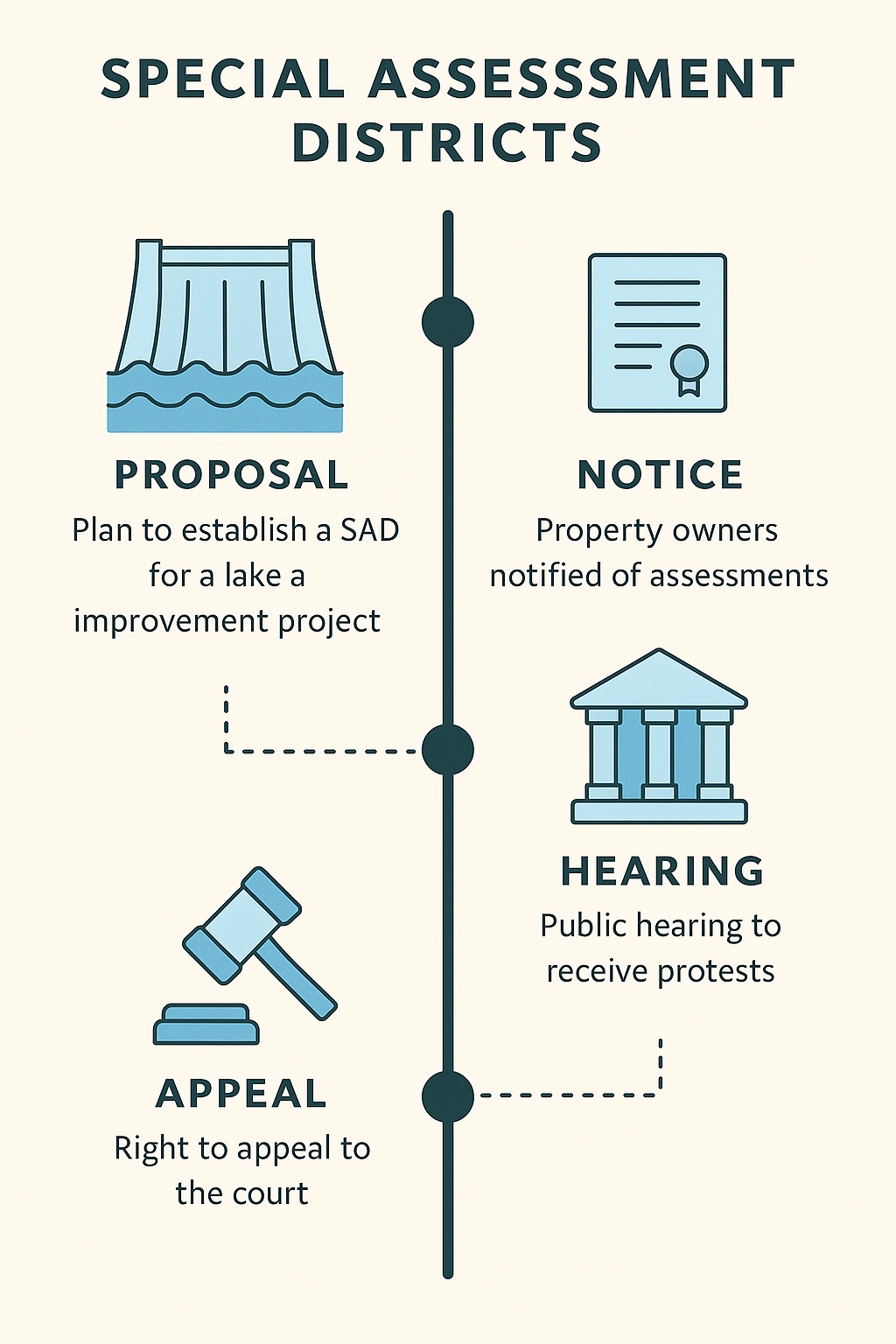Special Assessment Districts
Michigan’s inland lakes are often managed through a mechanism called a Special Assessment District (SAD). These districts allow counties and lake boards to levy costs on property owners to fund projects such as lake level controls, dams, dredging, or weed management. While presented as routine, these assessments can have major financial impacts, and property owners often disagree about whether they are fair or even lawful.
Under Part 307 of the Natural Resources and Environmental Protection Act (NREPA), county boards and courts may establish “normal lake levels” for an inland lake. To maintain that level, they can create a Special Assessment District that spreads costs among property owners around the lake. These costs may include dam construction, maintenance, engineering studies, and even long-term monitoring.
Unlike general taxes, special assessments are tied to the specific “benefit” a property receives from the improvement. If a property does not benefit, or benefits less than others, the assessment may not be proper.
For many owners, assessments can amount to thousands of dollars each year. The way costs are apportioned—whether equally among all parcels, weighted by frontage, or based on another formula—often sparks disputes. Owners may find themselves paying for projects that do not directly benefit their property, or paying more than their fair share.
Michigan courts have repeatedly stressed that special assessments must be proportional to the benefit received. If the formula is arbitrary or disconnected from actual benefit, it can be challenged.
Protests and Appeals
When a SAD is proposed, property owners receive notice and have the right to protest. This may involve filing written objections, appearing at a public hearing, or appealing to the Michigan Court of Appeals. Missing a protest deadline can sometimes limit the ability to challenge the assessment later.

Given the complexity of Part 307 and local practices, many owners are unaware of their rights or how to assert them. Legal guidance can make the difference between paying an inflated assessment and ensuring fair treatment.
Protecting Your Rights
Special Assessment Districts can serve important purposes in protecting Michigan’s lakes, but they must also comply with constitutional and statutory limits. Property owners should carefully review notices, consult their deeds and plats, and seek advice before accepting the charges as unavoidable.
If you believe your assessment is unfair or unlawful, an experienced Michigan riparian rights attorney can help evaluate your options and, when appropriate, challenge the SAD in court.